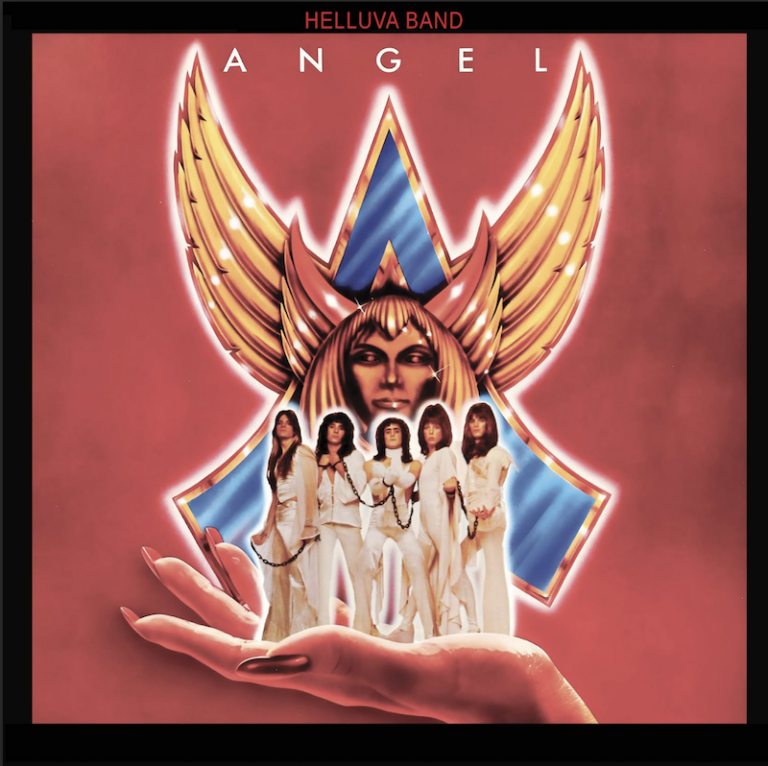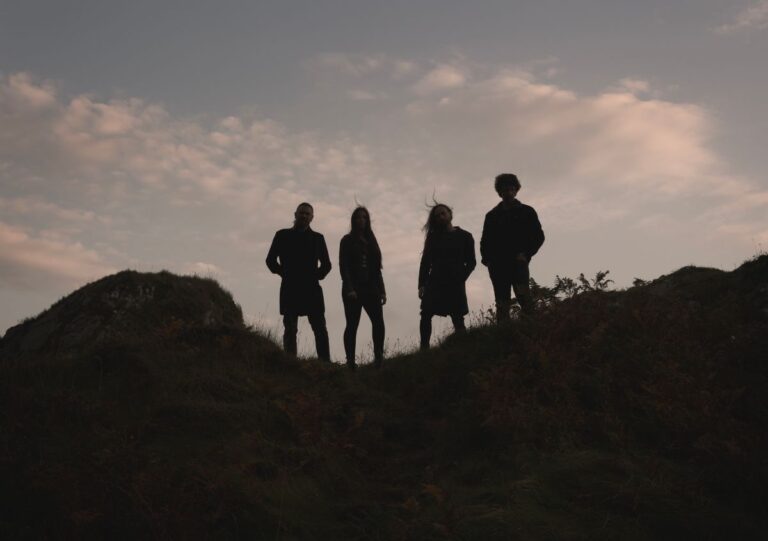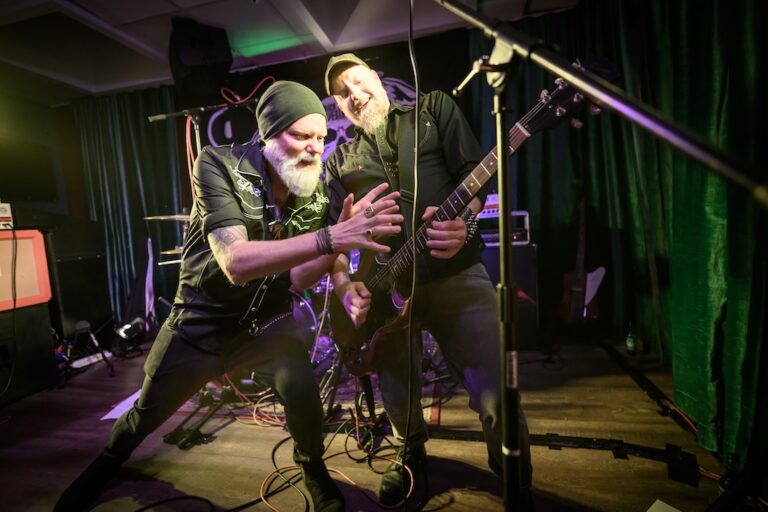When you talk about great rock vocalists then it is without doubt that the name Glenn Hughes will come near, if not at the top, of the list. A musician who lives entirely for the moment, whether you caught him on stage with Purple, checked out Black Country Communion on one of their all-too-rare appearances or witnessed the man performing solo, you’ll have seen a man who comes into his element on stage. An electric performer, masterful song-writer and veteran rocker who can lay more claim than most to having seen it all and done it all, you could forgive the man for being bored to tears by the machinations of the press industry, yet he is a charming, gentlemanly individual who listens patiently to my nervously stammered questions and answers thoughtfully and in detail.
The reason for this interview is, of course, the recent release of the debut album from California Breed, the devastating new band from Hughes, former BCC mainstay (and drummer extraordinaire) Jason Bonham and relative newcomer Andrew Watt. A near perfect collision of classic rock with the darker world of alternative rock (most notably soundgarden, Pearl jam and Audioslave), California Breed arguably features one of Hughes’ best vocal performances thanks to the inspired suggestion of Dave Cobb (famed Rival Sons producer) to cut the vocals entirely live and the result, as you should already have heard, is electrifying.
SonicAbuse was lucky enough to secure an exclusive phone interview with the legendary singer, songwriter and bassist and discuss the gestation of this remarkable album and it is our privilege to present to you our discussion with Glenn Hughes.
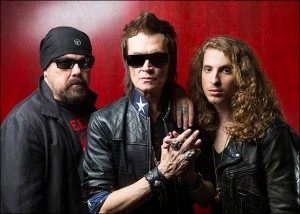
First of all, thank you so much for taking the time to talk to me.
No problem man.
Could you tell us a little bit about how you met Andrew Watt, I believe you were introduced by Julian Lennon?
Yeah, I was, you know, it was last year at the Grammys, we were in LA (the first time I’d been in LA for years) and Julian was in town doing an art exhibition and he invited me to come. I’ve known Julian for quite some time and just before I was going home, Julian said that he wanted me to meet someone – a friend of his from New York city – and he introduced me to Andrew and we spent about ten minutes talking and he was very interesting because he’s very young but he spoke to me in a term that I felt like he had an old soul… an old head on his shoulders and he spoke to me about his influences and it’s unlike anything I come from. You know I come from Bonamassa and Blackmore, Iommi and he spoke to me about how he grew up listening to Cantrell and Fruscianti and Jimmy Page, the guys in Pearl Jam and I thought, you know, OK, have you got anything that I can listen to? So, after the Grammys I went to Minneapolis and he sent me some works and I listened to his writing and I thought, well, this is really, really good for a young man and I listened to his guitar playing and I thought that he had a tremendous right hand – Angus Young and Keith Richards have a style and it comes from the right hand – Pete Townsend has it, you know, and then I heard his voice which was another key factor; anyone who knows about me knows I love to share the microphone and I really loved his voice. So I thought about it, I asked him what he was doing the week I got back from Minneapolis, he was in New York and came to my home and then we went in the studio and wrote two songs – ‘chemical rain’ and ‘solo’ and then we went and recorded them with Jason the following day and at the end of the day, I looked at these two guys and I said “I think we’ve got something here.” That’s how it started.
The chemistry that comes across on the album is immense, and one of the things noted in your press release was how you recorded outside of your comfort zone, cutting the vocals live. How was it for you to record in such a different way?
I want to address that because Dave Cobb said ‘how do you feel about Andrea and Jason tracking and you overdubbing your bass later and just going in now?’ he asked if I had the lyrics, which I did, and the melodies, which I did, and he said “just go in and sing and have some fun, right?” So when we recorded the album with guitar and drums and I sang, I was thinking that maybe there would be something we could keep, maybe just like a verse. Then I overdubbed the bass and I asked if it was time to sing and he just said that I didn’t have to. He said I’d already sung the album and I said “excuse me??” and he sat me down and played me the entire album without overdubs on the guitars and every note I sang, every breath, every ad lib, every tear, every laugh, every big rock sound to a whisper was completely and uniquely live. I have never, in my entire career, done anything like that. I was really in shock because for me I’ve always been a first or second take singer. I’ve never been in the studio more than two or three days to sing an album, I just don’t do that, but this time, what the world is hearing is a very, very honest Glenn Hughes vocal performance and there are so many things on this album which are so different. For example at the end of ‘breathe’ where I sing this falsetto thing, that became a solo. There’s no guitar solo – you get a vocal solo – who’d have thought of that? It’s completely unique.
Let’s talk about Jason’s drumming – gotta be the best drumming ever on a Jason Bonham record. Talk about Andrew’s amazing talent on his sounds and vintage pedals and the ambient noise and the… ah the feedback, it’s just so elegant and so uniquely, expressively, soulfully aggressive.
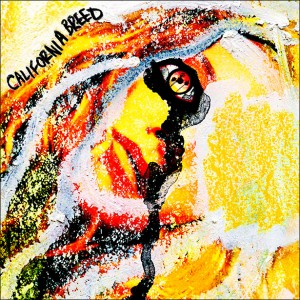
For me, one of the things that really shines out is the collision between the classic rock that you’re famous for and a more modern, alternative edge – is that the result of the way the writing is split equally between the three of you?
What we did when we started the band – when we realised shortly after we recorded ‘chemical rain’ and ‘solo’ – because Andrew is a song writer and I, most certainly, have been writing a long time and I love the art form of writing, it really enables me to be me – we decided that… for instance I wrote ‘breathe’, ‘sweet tea’ ‘days that come’ and ‘strong’ and the list goes on. I sent those songs to Andrew and I said that I needed him to add something to my work and that he should send ne what he had. He sent me ‘all falls down’ and ‘scars’ and I finished some of his work and then we took it to Jason and the collaborative experience happened. When you are in a real band, and the list is endless, a real band is collaborative, in partnership musically, sharing your joys together as writers. And I pushed Jason, emphatically, in Black Country Communion, to write more. ‘This way’, ‘this is your time’ and ‘save me’ he wrote, and ‘common man’ and he wrote great and I pushed him to write and now we’ve got a real band of brothers who are writing and enjoying the moment.
In interviews in the past, you’ve said that it’s key to you to live in the moment, and I have to say that this album is so spontaneous – you must have had a blast in the studio…
Well, people are calling it the album that Glenn should have made after Deep Purple. And as you know, Phil, I never really go back on my past. I’ve done my past, you know, but I can tell you that this is the most fun I’ve had making an album. We will go back to Dave Cobb, and I absolutely adore Nashville, and Dave Cobb is the fourth Beatle on this album. He’s truly an amazing producer – for me, the best rock producer on the planet right now.
Speaking of Dave Cobb, he’s done some amazing work with bands like the Rival Sons who are just awesome – had you heard their work? How did you come across Dave?
You know I know the guys in the Sons very well. I met them when I was hosting a party for my friend and fashion designer John Varvatos, ooh about three and a half years ago, and Scott and Jay came over to me and they had a CD and I had my Planet Rock radio show at the time and they asked me if I would mind playing a track of the album, and I was happy to because these kids looked really, really real and they were eager and honest and I could see that they meant business. So I played ‘pressure and time’ and when I heard it, I just thought it was great and wanted to know who produced it. So I Googled that and then my PR sent me the album and I noticed Dave Cobb so I Googled all of his work, as well as Rival sons, and I found it refreshing. He had a real energy and vibrancy that’s needed today and it was expressive and soulfully aggressive. So I kept his name in mind and when Black Country broke up I said to Jason that it was time we called Dave Cobb and it was as simple as that. I spoke to Dave many, many times before I went to Nashville and we struck up a very good friendship and he had absolutely no fear.
You said that you went into the studio and cut the vocals live – how long did it take to develop the lyrics prior to that?
It doesn’t take long for me. I normally write one or two sets of lyrics per song, with the same title, because I… You know, looking back over my life, earlier on, for me, I look back at the lyrics I wrote and I look at them now and I’ve got so much life experience to talk about. If you know my work, you’ll know that I don’t write about goblins down the garden or faeries in the shed. I talk about the human condition, I celebrate life and I actually celebrate death and what we have to go through in order to live and breathe and be of service to our fellow kinship. And that… I don’t write about things that I don’t know about, I just write about things that I’m certain about – which is life.
Since ‘Afterglow’ you seem to have been amazingly active working with Julian Lennon last year, I think; you’ve been on the Dio tribute album, you’ve played with a number of other bands. What makes you get involved with a project?
The reality of the question is probably different to what I would have told you thirty years ago. It’s the people that I’m working with. Can these people understand who I am as a friend? Can I have dinner with these people? Can I come into their lives? Can they come into my life? Can we travel together and work together? It’s a long lineage of things. I don’t do things just for financial reasons: it’s got to be art, art, art first and foremost. All the people I work with are pretty much in the same thing as I am – they’re either normal or sober or they’re funny and they’re still breathing on their own. I’ve worked with Slash and Duff and Matt Sorum with Kings of chaos and we’re all guys who’ve been through hell on drugs and we’re all sober. And I have a really good relationship with Joe Elliot, for, oh gosh, for thirty something years, and we played together on Kings of chaos, so, you know, I surround myself with loving, nurturing friends.
One of the things I’ve always felt is that Glenn Hughes comes truly alive on stage and one of things I’m sure people will want to know is when will we see you live?
Well, it’s safe to say that the album is now with the media and the singles are coming out and hopefully the tours will be in place for the fall, so the great news, Phil, is that you should be seeing California Breed this year.
With regards to playing live, the guitar sound on the CD is absolutely huge, it’s massive…
It is massive, yeah!
Are you going to be able to recreate that as a three piece or will you be bringing in another guitarist?
I’m not sure. I’m going to Florida in April with Andrew and Andrew’s going to be with me before in LA, and we’re going to go to Jason’s home in Florida and we’re going to play for a week and figure out what we’re going to do, so I’ll let you know the next time I see ya!
Can we expect to hear Jason singing as well?
Oh yeah – I insist on everyone singing, in fact I want Andrew to sing a little bit more and I want Jason to sing more. Listen man, I’m in love with the people I play with, you know that, they’re my friends and my family.
You’ve achieved so much and influenced so many, and yet you’re still writing this inspiring, ambitious music – are there any ambitions you have left to fulfil?
All I want to do is to be spiritually active and to progress spiritually and I don’t really care about anything other than now. I have forsaken material things to be where I am spiritually and spiritual progression is rather than spiritual perfection.
Thank you so much, it’s been an honour to talk to you.
You’re welcome Phil.
If, for some reason you haven’t heard the album, check out the ‘Sweet tea’ promo below:
Photo credit: Joe Lester
